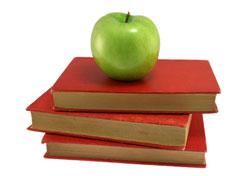AJ and His Experiences with PKU
GEMSS would like to thank AJ and his mother for their generosity in sharing this story with us. You have made the site come to life with the addition of your thoughts and feelings. Thank you so much!


AJ and his twin brother are 7 years old and live in a small New England town in the USA. On the 6th day of their lives, their parents heard the news that AJ had classic phenylketonuria (PKU) and that his twin brother did not. Although his parents had never heard of it, they quickly learned so much through specialty clinics in a large city. After 9 days in the Neonatal Intensive Care Unit to get stronger, AJ was discharged. He was breast fed initially and his parents kept good records of all of his intake and output. As he gets older, they have become a bit more relaxed but still keep daily records. That is important so that they can keep track of how much ‘PHE’ he takes in.

AJ is a sports fanatic with an infectious laugh. He loves team sports and is very active in soccer, baseball, and basketball. He has been riding a bike since he was three years old! He goes on play dates and has friends over for visits. His mother sends snacks that he can eat on the play dates, or lets the parents know ahead of time that he can have any fruit or water. She even had a refrigerator magnet made for close family and friends with his picture surrounded by all the foods he can eat. Their family, friends, and classroom mothers want to know what foods he can eat so they can create snacks that work for ALL kids!
AJ had early intervention services before he turned three and he attended a typical neighborhood preschool with his brother. He is now enrolled in his neighborhood school, is a second grade student, and has a 504 Plan. He does not have an IEP. The 504 plan outlines what school lunches he can eat and indicates which specialty foods the school can order, how much he can have, and how to prepare. His parents worked very hard to get the accommodations he needed written into the plan. His testing at a nearby clinic has him on track for all of his development.
AJ gets most of his nutrition synthetically, with careful attention to PHE levels. He needs to have a special milk (formulated) during the day. AJ has shared that he is embarrassed to have a thermos throughout the day at school and his mother does not want to have him singled out. They are working on strategies to make this of an issue. At birthday parties and social events, curious children might ask him why his pizza is different than theirs. Soon AJ will be able to have answers as he will be learning to take charge of his diet. His mother shared an exciting note about calculating his PHE intake, stating, “There’s an ‘app’ for that!”
His mother has taken Leadership training offered to parents in her state. She has served on a statewide council for children who have health conditions. She also willingly corresponds with other parents worldwide through the PKU list serve.
AJ's mother shared some useful tips for parents and teachers.
For parents:
- Put together a list of what foods are safe and share with family, friends, and the school.
- Deliver a box of food to the classroom filled with snacks he can eat. Then, if an event arises, he can have a snack. His teacher can let the parents know which food he ate so they can calculate his intake for the day.
- Communication notebooks that go back and forth to school are helpful, especially in the preschool years.
- Share the print outs for teachers from the GEMSS website or from other Websites like Children’s Hospital in Boston. http://newenglandconsortium.org/brochures/educators-guide-to-pku.pdf or http://newenglandconsortium.org/for-professionals/teachers-resources/edu...
- Help your child learn how to explain his dietary needs AND really understand why it is so important to keep giving his body and his brain the fuel it needs.
For teachers and school personnel:
- In some ways, PKU is similar to a food allergy, except that it is NOT life-threatening if he has a food he shouldn’t accidentally. She likes to have AJ “lumped into the allergy crowd.” However, some people don’t share this belief.
- Ask parents what would be helpful for them. For example, be open to talking about changes that either notices like fatigue or sluggishness.
- “Melt downs” could just be age related or might indicate higher levels of PHE. There is nothing special diet-wise to do in the moment other than work through it.
- He cannot have the school lunch foods (main entrée) which is why the family pushed for the 504 Plan. This plan explains that he is required to have specialty low protein foods (ordered by the school district). The family has chosen 5 different meals AJ can have and his mother emails the school with the dates and food substitutes for the coming month. AJ buys his school lunches at the same price the other students pay.
